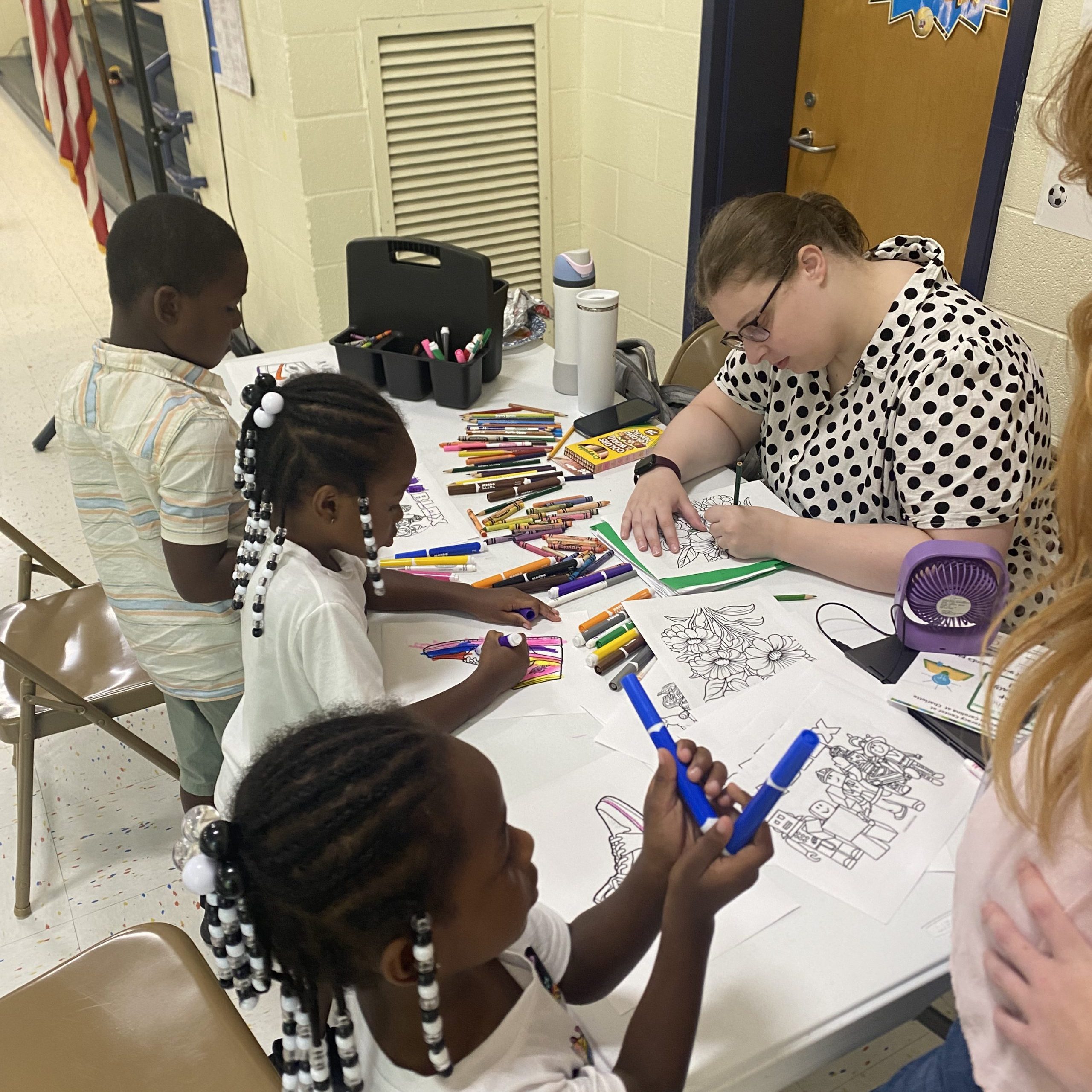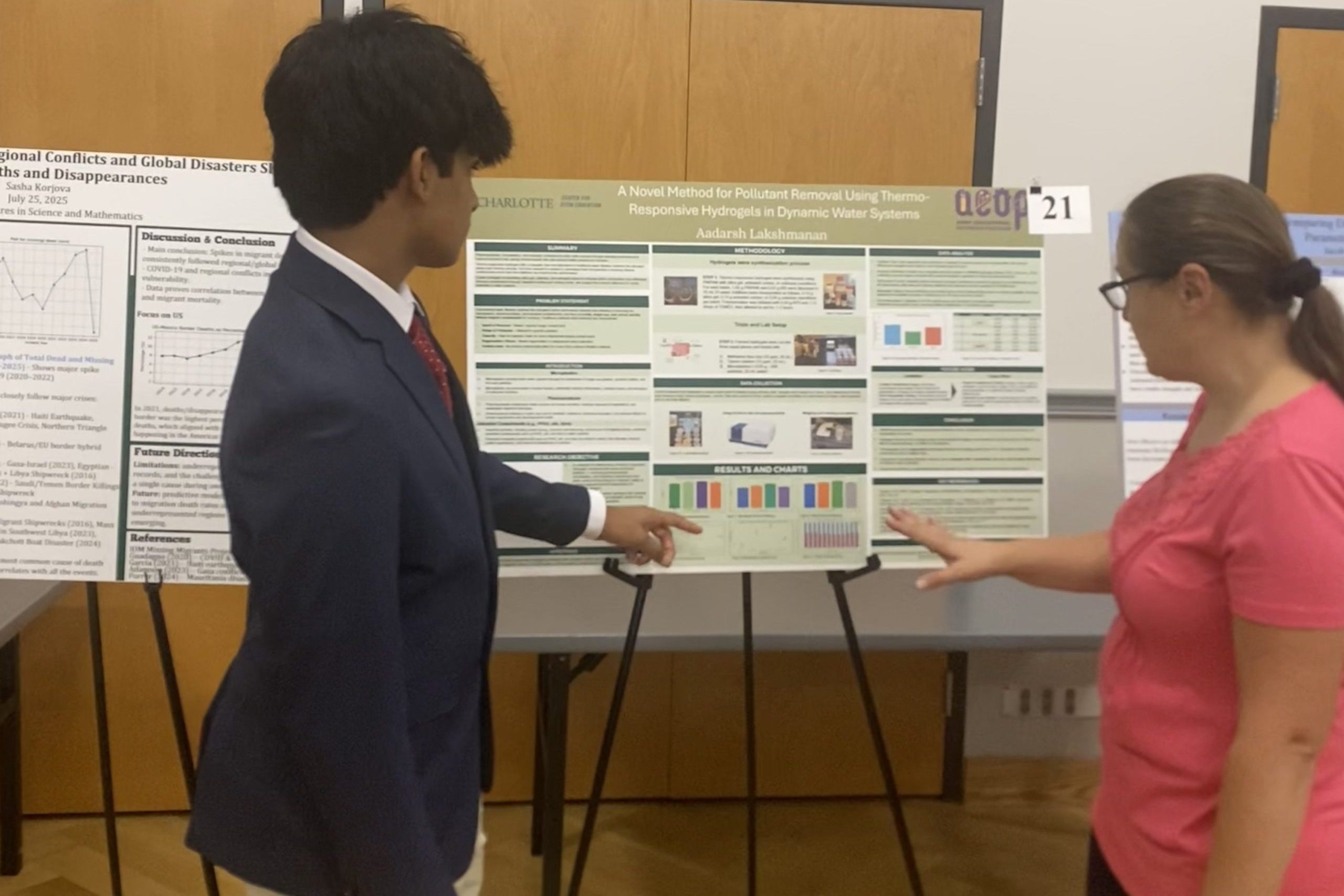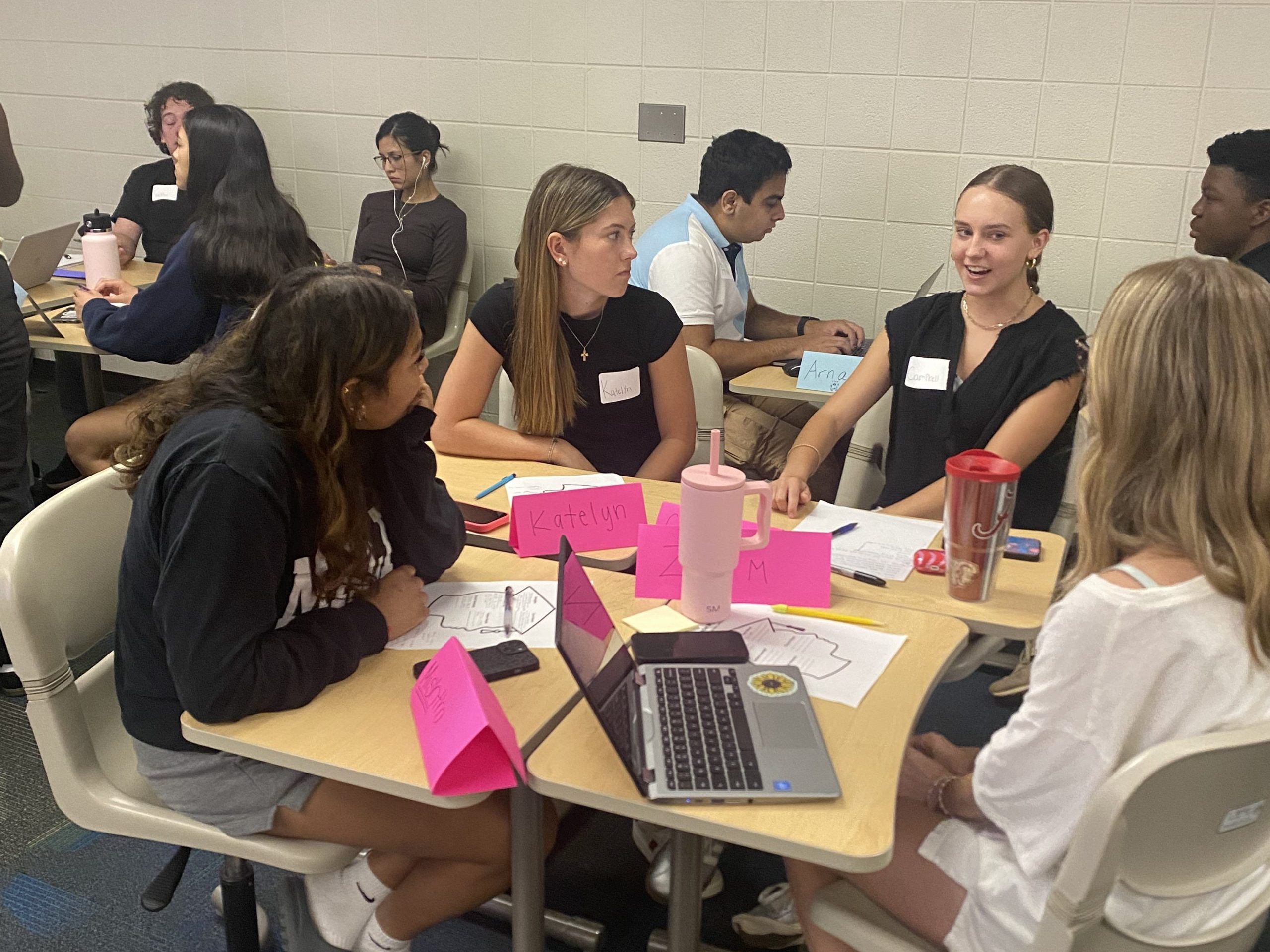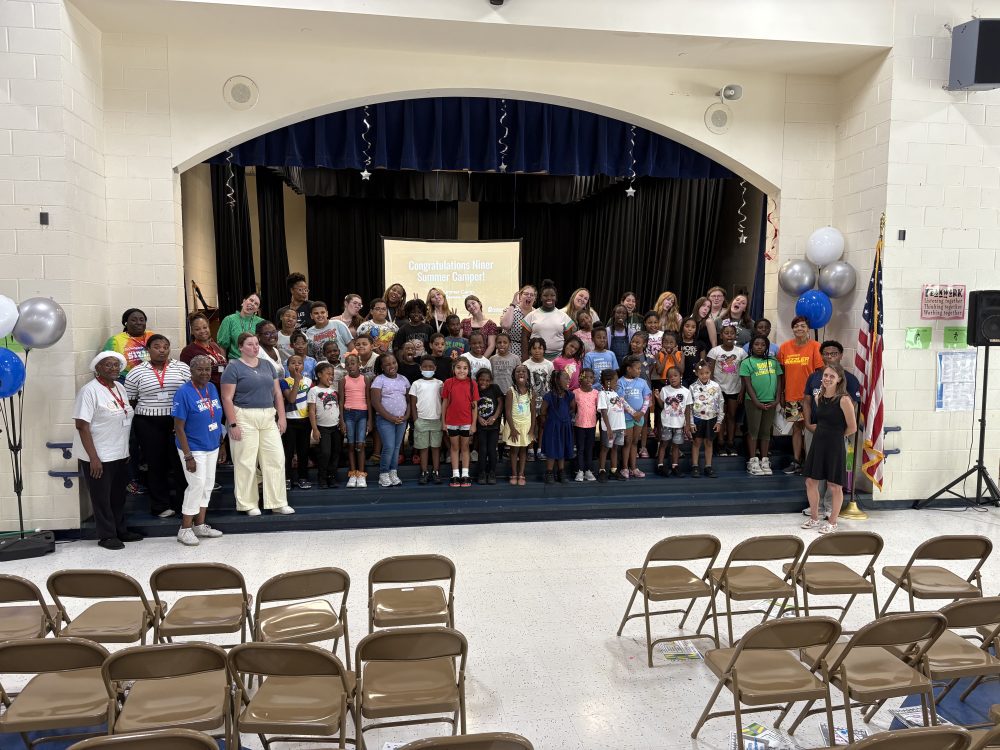Empowering Future Leaders: Cato College’s Summer Programs in STEM, Literacy, Writing and Research
Cato College’s summer programs give K–12 students hands-on research, tutoring and growth opportunities that bridge academics with future careers. Through STEM immersions, literacy and math camps, and writing workshops, students gain experiences that spark curiosity, build confidence and foster academic achievement. This summer, the university offered three distinct programs—each tailored to specific educational needs—demonstrating Cato College’s commitment to preparing students with the foundational skills for academic and career success.
Cato College’s Role in Summer Learning
Each summer, Cato College of Education expands learning through programs designed to meet students where they are. Initiatives like STEM immersions, literacy and math camps, and creative writing workshops empower K–12 learners to strengthen skills, explore new subjects and gain confidence in their academic abilities.
The STEM Pre-College Program, hosted by the Center for STEM Education (CSTEM), offered weeklong immersions in biology, chemistry, physics, coding, math and Science Olympiad, giving students opportunities to explore topics beyond their school curriculum.
Victor Mack, director of the STEM Pre-College Program, highlighted the university’s dedication to engaging local students in STEM. “The STEM Pre-College Program is vital for middle and high school student engagement and encourages them to pursue STEM majors and careers,” he said.
Outreach and Partnerships

Literacy and math camps, primarily run by Cato College teacher candidates under the guidance of experienced educators, focus on preventing summer learning loss through targeted academic support. Greater Enrichment Program (GEP) leads full-day camps for elementary students across Charlotte and, at Merry Oaks Elementary this year, partnered with Cato College faculty and students to add academic instruction to their programming.
Erin Washburn, camp director and faculty member in elementary education, explained, “Our partnership with GEP allows us to provide customized academic enrichment and intervention support in reading and math tailored to students’ needs.”
Camille Walters, a lead instructor, emphasized the impact of this intensive summer support: “These four weeks of intervention are really pivotal and amazing, but not a lot of programs do it.” The camp provides structured, hands-on learning that prevents summer learning loss and helps students develop new skills, building both confidence and academic growth.
These programs demonstrate how careful planning and individualized attention can maintain academic momentum and nurture student growth during the summer months.
Research and Discovery

For students participating in the Army Educational Outreach Program through CSTEM, summer learning provided real-world research experience.
Program participant Jacob Lawson described the program as a chance to explore new knowledge. “Applying my knowledge in new areas was amazing,” said Lawson.
Fellow participant and project partner Silas Goff echoed the value of this experience. “As a homeschooled student, I don’t have many opportunities for extracurriculars. This camp gave me a real research experience and a taste of the college environment. In just two weeks, Donald Jacobs, associate professor of physics and optical science, helped us understand complicated material and then apply it into code to generate graphs. That was really fun.”
These experiences contrast the traditional classroom with hands-on learning, showing how mentorship can spark interest in future STEM careers.
Writing Workshops: Developing Voices for College
The Charlotte Writing Project (CWP) aims to instill a lifelong appreciation for writing and self-expression while preparing students for college application and scholarship opportunities.

The Charlotte Writing Project’s Personal Statement Workshop guided high school seniors in a critical step in the college application process. CWP co-director Heather Coffey shared, “Students have requested this workshop to help with their educational journey. This summer, we also offered a graphic novel writing camp for middle school students and a creative writing camp for high school students.”
Students gained valuable experience expressing their purpose clearly and refining their voice. Middle school campers focused on storytelling and structure, while high school students worked on personal statements, critical thinking and self-expression.
Tara Gabriel, a Charlotte alum who led several of the camps, noted the impact of peer review and collaboration. “Students engaged in peer review, allowing them to give and receive constructive feedback and learn from one another,” she said.
Although producing a physical anthology wasn’t possible this year due to funding limitations, students enjoyed sharing their work digitally through Edublog. Gabriel and Coffey see potential for growth. “We’re exploring free, student-friendly platforms that could allow students to design covers or create full graphic novels online.”
Long-Term Impact and Success Stories
Cato College’s summer programs have a measurable impact on students’ academic trajectories. Mack pointed to alumni success: “We’ve had students like Jeremy Feaster, now at Lawrence Livermore Laboratory, and Tyra Pendergrass Boomer, deputy director of the play2PREVENT Lab and research project director at Dartmouth’s Center for Technology and Behavioral Health, who got their start in these programs.”
Zoie Matthews, a literacy camp leader, recalled a student who made remarkable progress in reading. “I had a kid who two years ago was reading significantly below grade level. Now he’s reading long passages with complicated words.” She explained that consistent, year-round learning opportunities like the summer camps help students sustain growth beyond the school year, preventing setbacks and building a stronger foundation for long-term academic success.
The Charlotte Writing Project (CWP) aims to instill a lifelong appreciation for writing and self-expression while preparing students for college application and scholarship opportunities.
Feedback and Future Goals

Post-summer evaluations demonstrate the effectiveness of these programs, with evidence indicating a tangible impact on student learning and interest.
Mack shared results from recent STEM programs, noting that students consistently reported increased skills, confidence, and curiosity. Ninety percent of students who participated in the High School Biology Program indicated an increase in awareness of STEM resources, while 85% of participants in the Middle School Python Pioneers Program noted a positive environment for STEM inquiry.
Research indicates that early exposure to STEM builds problem-solving and critical thinking skills, increasing students’ confidence in pursuing advanced courses. “We hope to expand comparable programming for middle school students in summer 2026,” Mack said.
Washburn’s data returned equally positive results, with nearly every grade improving their reading scores from pre- to post-test and their math reasoning skills. She also noted plans to continue collaboration for literacy and math camps. “We plan to collaborate with GEP again next summer,” she stated, underscoring the significance of this continued support.
The Charlotte Writing Project also anticipates growth, as organizers explore ways to expand writing workshops. Gabriel and Coffey believe this growth is vital for college readiness.
These initiatives combine data-driven outcomes with a forward-looking vision, ensuring the programs continue to grow and serve more students each year.
Cato College’s summer programs demonstrate the college’s commitment to advancing education across the lifespan by developing foundational literacy and math skills at the elementary level, advancing STEM pathways in adolescents, and fostering creativity and college readiness with writing skills for high schoolers. Looking ahead, Cato College plans to expand summer offerings by incorporating subjects like biomedicine, data science and engineering—areas already introduced through its Saturday Academy program—to give students earlier exposure to potential college majors and career pathways. With these additions, future generations of students will continue to benefit from high-quality summer learning experiences rooted in both academic enrichment and real-world application.
Written by AJ Armah